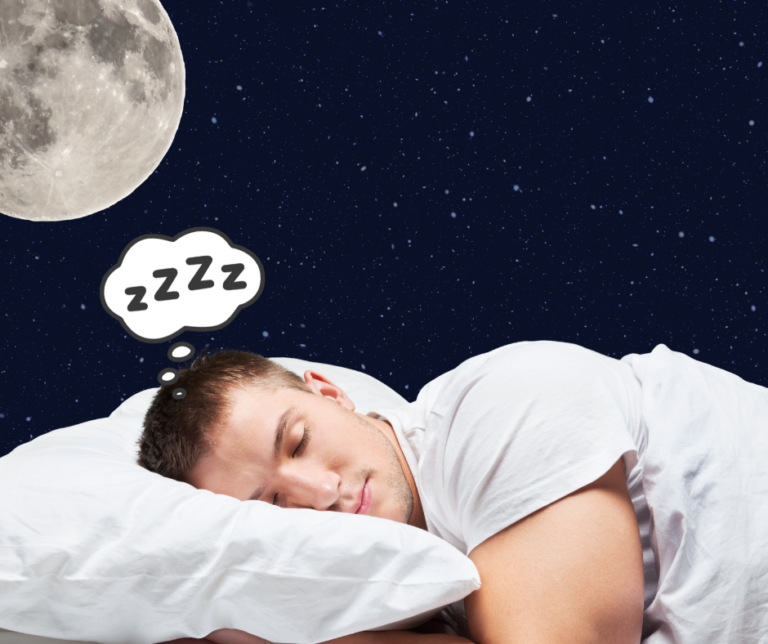
Runners, it’s time to talk about an essential yet often underrated aspect of your training regimen: sleep. Yes, that precious downtime where you lay down, close your eyes, and seemingly do nothing is actually the secret sauce to becoming a better runner. Think of sleep as the place where you go to upgrade your running software.
We often hear about the importance of proper nutrition and consistent training when it comes to improving our running performance, but sleep tends to get overlooked. Yet, it’s just as crucial, if not more so. In this blog post, we’ll explore why sleep is a runner’s best friend and how it can make a world of difference in your quest for PRs and pain-free runs.
The Science of Sleep
Before we dive into how sleep affects your running, let’s briefly touch on the science of sleep. Sleep is a complex biological process that involves multiple stages, each serving a unique purpose.
The two main types of sleep are REM (Rapid Eye Movement) and non-REM sleep. REM sleep is the stage where most dreaming occurs and is crucial for cognitive function and memory consolidation. Non-REM sleep is further divided into three stages, with deep sleep (stage 3) being the most restorative.
During deep sleep, your body undergoes physical repair, tissue growth, and immune system enhancement. This stage is where the magic happens for runners because it’s when your body repairs and strengthens muscles, tendons, and ligaments. In essence, it’s your body’s way of recovering from the day’s wear and tear.
The Role of Sleep in Recovery
Now, let’s connect the dots between sleep and running. When you run, especially if you’re training hard or participating in long-distance races, your body takes a beating. Your muscles contract and expand repeatedly, causing tiny tears. These tears are necessary for muscle growth and improvement, but they also lead to soreness and inflammation.
Sleep, particularly deep sleep, is when your body repairs these micro-tears. It’s akin to patching up tiny cracks in a wall to make it stronger. Without adequate sleep, these tears remain unrepaired, and your muscles stay in a state of perpetual fatigue and weakness. This not only hampers your running performance but can also increase the risk of injury.
Sleep and Mental Performance
Running is not just a physical activity; it’s also a mental game. Mental fatigue can be just as detrimental to your performance as physical fatigue. Lack of sleep can lead to decreased focus, impaired decision-making, and reduced motivation.
Think about those early morning runs when you’re running on minimal sleep. It’s harder to maintain your pace, and negative thoughts creep in more easily. With proper sleep, you’re not only physically prepared but mentally sharp, too. You’ll be better equipped to tackle the challenges of long runs or races.
The Hormonal Connection
Sleep has a profound impact on your hormonal balance, and hormones play a significant role in your running performance. Two hormones, in particular, deserve your attention: cortisol and growth hormone.
Cortisol, often referred to as the stress hormone, increases when you’re sleep-deprived. Elevated cortisol levels can break down muscle tissue and inhibit muscle growth, directly affecting your running performance. On the flip side, growth hormone, responsible for muscle repair and growth, is released in larger quantities during deep sleep.
Tips for Better Sleep
Now that we’ve established the importance of sleep for runners, let’s discuss how you can ensure you’re getting quality shut-eye:
1. Consistent Sleep Schedule: Go to bed and wake up at the same time every day, even on weekends. This helps regulate your body’s internal clock.
2. Create a Relaxing Bedtime Routine: Wind down before bed with activities like reading, stretching, or deep breathing exercises.
3. Invest in a Quality Mattress and Pillow: Your bed should be comfortable and supportive to prevent sleep disruptions.
4. Limit Caffeine and Alcohol: These substances can interfere with sleep. Try to avoid them in the hours leading up to bedtime.
5. Limit Screen Time: The blue light emitted by phones, tablets, and computers can interfere with your sleep. Aim to turn off screens at least an hour before bedtime.
6. Create a Sleep-Friendly Environment: Make your bedroom cool, dark, and quiet to promote restful sleep.
7. Watch Your Diet: Avoid heavy meals close to bedtime, and be mindful of what you eat in the evening.
Conclusion
In the pursuit of becoming a better runner, don’t neglect the power of sleep. It’s not a waste of time; it’s an investment in your running performance and overall health. Think of it as the place where you go to upgrade your running software.
When you prioritize sleep, you’ll recover faster, perform better, and enjoy your runs more. So, the next time someone asks you how you’re improving your running game, proudly say, “I’m getting some quality shut-eye.” Your body and your PRs will thank you for it. Sweet dreams and happy running!
